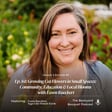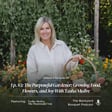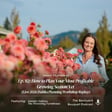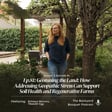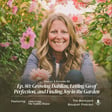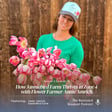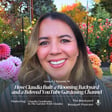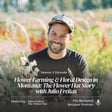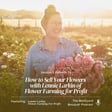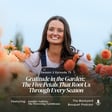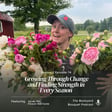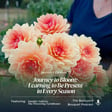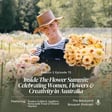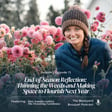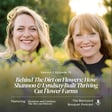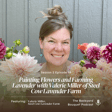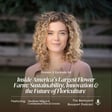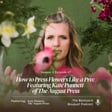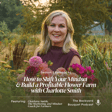
Ep.58: The Slow Flowers Movement & The Power of Local Blooms with Debra Prinzing
In this episode of The Backyard Bouquet Podcast, we are joined by Debra Prinzing, founder of the Slow Flowers Movement and co-author of The Flower Farmers: Inspiration and Advice from Expert Growers. Debra shares her journey from writing The 50 Mile Bouquet to founding the Slow Flowers Movement—a movement that champions local, seasonal, and sustainable flowers.
In this inspiring conversation, Debra talks about the importance of supporting local flower farmers, how storytelling is transforming the floral industry, and the lessons she’s learned from interviewing flower farmers across North America. Whether you're a flower lover, a backyard gardener, or aspiring flower farmer, this episode is full of valuable insights on how to embrace the beauty and purpose of local blooms.
Tune in to learn:
- What the Slow Flowers Movement is and how it’s changing the way we source flowers
- The stories behind The Flower Farmers book and how it highlights the lives of flower growers
- How the power of local flowers extends beyond beauty to healing and community-building
- Practical advice for new and experienced flower farmers
Join us for an insightful discussion that will leave you inspired to support local flowers and consider the bigger picture behind every bloom.
Show Notes: https://thefloweringfarmhouse.com/2025/05/13/ep-58-the-slow-flowers-movement/
Learn More:
- Slow Flowers Society: https://www.slowflowerssociety.com/
- Instagram: https://www.instagram.com/slowflowerssociety/
- Instagram: https://www.instagram.com/debraprinzing/
- Purchase The Flower Farmers Book: https://store.abramsbooks.com/products/the-flower-farmers
***Rate, Review, & Follow The Backyard Bouquet***
If you enjoyed this episode, will you please consider leaving the podcast a review? Your review helps make the podcast more discoverable to others and allows me to continue creating more episodes. I'd love to know what you enjoyed most about the episode.
New episodes every week to help keep your garden blooming!
